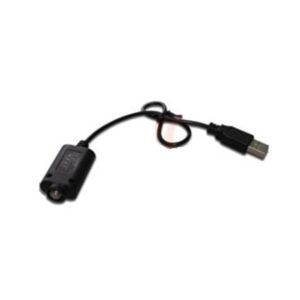Curious minds often wonder, “How long does it take for batteries to charge?” Well, fret not, for I have the answer you seek. Charging time, my friend, depends on various factors such as battery capacity, charger output, and the type of battery you have. So, let’s dive into the world of battery charging and explore the fascinating journey of power replenishment. With each paragraph, we’ll unravel the mysteries of charging time and equip you with the knowledge you need to understand this essential process. Shall we begin this electrifying adventure? Let’s go!
How Long Does It Take for Batteries to Charge?
When it comes to charging batteries, one common question that often arises is, “How long does it take for batteries to charge?” The answer to this question can vary depending on several factors, including the type of battery, its capacity, the charging method used, and the specific device or charger being utilized.
In this comprehensive guide, we will explore the various factors that influence charging time for different battery types, including lithium-ion batteries, lead-acid batteries, and nickel-cadmium batteries. We will also discuss the different charging methods and provide tips on how to optimize charging time for your batteries.
Factors Affecting Charging Time
Several key factors influence the time it takes to charge a battery:
Battery Capacity
The capacity of a battery, measured in ampere-hours (Ah) or milliampere-hours (mAh), determines how much energy it can store. In general, the higher the battery capacity, the longer it will take to charge fully. For example, a battery with a capacity of 3000mAh will take longer to charge than a battery with a capacity of 1500mAh, assuming both are charged using the same method and charger.
Charging Method
The charging method used can significantly impact the charging time. There are primarily two types of charging methods: constant current charging and trickle charging.
1. Constant Current Charging: This method involves supplying a constant current to the battery until it reaches a certain voltage or charge level. Typically, constant current charging is faster than trickle charging and is commonly used for lithium-ion batteries.
2. Trickle Charging: Trickle charging involves supplying a low, continuous current to the battery over a longer period. This method is often used for lead-acid batteries, where slow charging is preferred to prevent damage and promote longevity.
Charger Specifications
The specifications of the charger being used also play a crucial role in determining the charging time. Some key charger specifications that can affect charging time include:
1. Charging Current: The charging current, measured in amperes (A) or milliamperes (mA), indicates how much current the charger can supply to the battery. A charger with a higher charging current can charge the battery faster.
2. Charging Voltage: The charging voltage indicates the amount of voltage the charger supplies to the battery during charging. Different batteries require different charging voltages, and using the right voltage is crucial for efficient and safe charging.
3. Charger Efficiency: The efficiency of the charger determines how effectively it converts the input power into usable charging power. A more efficient charger will transfer more power to the battery, reducing charging time.
Battery Type
Different battery chemistries have varying charging characteristics, which affect the charging time. Here are some common battery types and their associated charging times:
1. Lithium-ion Batteries: Lithium-ion batteries are commonly used in smartphones, laptops, and other portable devices. They are known for their high energy density and relatively short charging times. On average, it takes 2 to 4 hours to charge a lithium-ion battery fully, depending on its capacity and the charging method used.
2. Lead-Acid Batteries: Lead-acid batteries are widely used in vehicles, boats, and backup power systems. They have a slower charging time compared to lithium-ion batteries. Charging a lead-acid battery can take anywhere from 4 to 12 hours, depending on its capacity and the charging method utilized.
3. Nickel-Cadmium Batteries: Nickel-cadmium batteries, although less common these days, are still used in certain devices. They have a higher self-discharge rate and can develop a memory effect if not charged properly. Charging time for nickel-cadmium batteries typically ranges from 1 to 3 hours.
Tips to Optimize Charging Time
While charging times are influenced by various factors, there are a few tips you can follow to optimize the charging time for your batteries:
1. Use the Right Charger: Always use a charger that is specifically designed for your battery type. Using an incompatible charger can lead to a longer charging time or even damage the battery.
2. Avoid Extreme Temperatures: Charging batteries in extreme temperatures, whether too hot or too cold, can significantly affect charging time and overall battery performance. Try to charge batteries in a moderate temperature range for optimal charging efficiency.
3. Avoid Overcharging: Overcharging a battery can lead to reduced battery life and potential safety hazards. Most modern chargers have safeguards to prevent overcharging, but it’s still essential to avoid leaving batteries connected to the charger for an extended period once they reach full capacity.
4. Consider Fast Charging Options: If your device and battery support it, consider using fast charging options. Fast charging technologies, such as Qualcomm Quick Charge or USB Power Delivery, can significantly reduce charging time for compatible devices.
In conclusion, the charging time for batteries can vary depending on factors such as battery capacity, charging method, charger specifications, and battery type. Lithium-ion batteries generally have shorter charging times compared to lead-acid and nickel-cadmium batteries. By understanding these factors and following the optimization tips mentioned, you can effectively charge your batteries within a reasonable time frame while ensuring their longevity and performance. Remember to always refer to the manufacturer’s guidelines for specific charging instructions for your batteries.
Frequently Asked Questions
How long does it take for batteries to charge?
Charging time for batteries can vary depending on the type of battery and the charging method used. Here are some frequently asked questions regarding the charging time of batteries:
1. How long does it take to charge a standard AA battery?
The charging time for a standard AA battery can range from 1 to 5 hours, depending on the charging current and the capacity of the battery. It is recommended to refer to the manufacturer’s instructions for specific charging times.
2. What is the average charging time for a smartphone battery?
The average charging time for a smartphone battery is around 2 to 3 hours. However, this can vary depending on the battery capacity, the charger’s output power, and whether the device is being used while charging.
3. How long does it take to charge a laptop battery?
The charging time for a laptop battery typically ranges from 2 to 4 hours. However, it may take longer if the laptop is being used during the charging process, as this can slow down the charging speed.
4. Can fast charging shorten the battery charging time?
Yes, fast charging technology can significantly reduce the charging time of batteries. Depending on the device and charger compatibility, it can charge a battery up to 50% or more in just 30 minutes.
5. How long does it take to charge an electric vehicle (EV) battery?
The charging time for an electric vehicle battery depends on several factors, including the battery size, charging station power, and the state of charge. On average, a full charge can take anywhere from 4 to 12 hours using a standard home charging station.
6. What is the charging time for rechargeable AA or AAA batteries?
The charging time for rechargeable AA or AAA batteries can vary depending on the charger and battery capacity. Generally, it takes around 1 to 4 hours to fully charge these batteries.
Final Thoughts
In conclusion, the charging time for batteries can vary depending on various factors. The type and capacity of the battery, as well as the charging method used, play significant roles in determining the duration required for a full charge. Generally, it can take anywhere from a few hours to several hours for batteries to charge fully. It is crucial to follow the manufacturer’s guidelines and use the appropriate charger to ensure safe and efficient charging. So, if you’re wondering, “How long does it take for batteries to charge?” remember that there is no one-size-fits-all answer, but being knowledgeable about these factors will help you make informed decisions.


